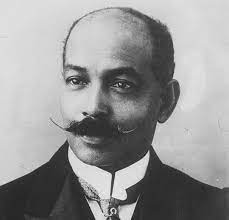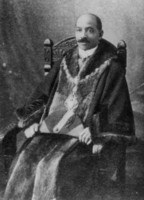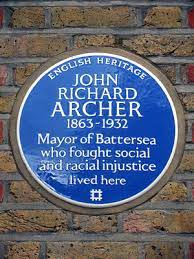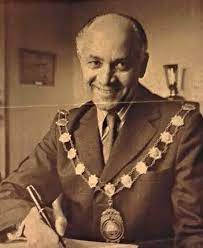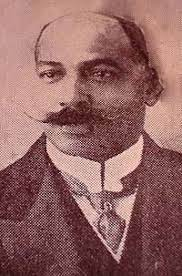Early Black British mayor and a founding member of the Labour Party. Keir Hardie and Ramsay MacDonald are wellknown as the founding fathers of the Labour Party, but the part played by Liverpoolborn John Archer is not always remembered. John Richard Archer (1863-1932) was Mayor of Battersea in 1913 and one of Britain’s earliest BBlack mayors. John Archer was thought to be the first BBlack mayor in Britain until quite recently, but an even earlier candidate for that honour is Dr Allan Glaisyer Minns, Mayor of Thetford in Norfolk, elected in 1904.
8/06/1863
14/07/1932
Liverpool, England
Mother was Irish born and Father was a Barbadian
1900s- Elected as representative to the first PanAfrican Conference at Westminster.
1913- Nominated for Progressive candidate for Mayor in Battersea.
1919- Archer was re-elected to the Council as a Labour representative.
1930s- Archer House named after John Archer.
1931- Re-elected to the Council for the Nine Elms Ward
1986- Wandsworth School was renamed in his honour in 1986
2004- Chosen for the 100 Great Black Britons list.
2010- Commemorated with a blue plaque from the Nubian Jak Community Trust.
2013- One of six people selected by Royal Mail for the Great Britons commemorative postage stamp issue.
2013- Honoured by English Heritage with a blue plaque at his former home, 55 Brynmaer Road, Battersea.
2018- Ark Academy Network renamed High View Primary school in Battersea as Ark John Archer Academy
John Archer was born on 8 June 1863 to Richard Archer, who was a Barbadian, and Mary Theresa Burns who was Irish born. They lived in 3 Blake Street in Liverpool, which is behind the present-day Lime Street Station.
Archer travelled the world at least three times as a seaman, living in the West Indies and North America for a while before settling in Battersea in England with his Canadian wife Bertha in the 1890s. It was then that he started to study medicine and ran a small photographic studio. He was a prizewinning photographer.
Whilst Archer was a lifelong socialist he became involved in local politics after his return to Britain, where he started his political life speaking against Spiritualism. He supported the radical Liberal John Burns and other London radicals. Battersea was dominated by Labour, Liberal and radical internationalist movements at the time. Archer was soon involved in the Battersea Labour League. Well known for his practical approach to social welfare, John Archer was elected to the Wandsworth Union Board of Guardians in 1906, eventually being elected Councillor.
When Archer was nominated for Progressive candidate for mayor in Battersea in November1913, the Black vote was very small indeed and he faced a number of negative and racist communications during his campaign. The press, for example, were not familiar with the old dual heritage Liverpool-born Black Community and were somewhat mixed up about his origins. Some members of the press thought that he was Burmese and were surprised at his command of the English language. Furthermore, newspapers honed in on the fact that the first Catholic mayor T P Brogan had been John Archer’s mentor prior to his election. The vote was close and he won by 40 votes to 39 among his fellow Councillors. John continued to face a number of racists reporting from the press, for example in November of 1913, following Archers election as mayor the South Western Star newspaper stated “It is not meet that the white man should be governed and controlled by a man of colour. It has always been that the white man ruled and it must always be so. lf not, goodbye to the prestige of Great Britain.” Despite this Archer continued to have a successful political career. In 1919, Archer was re-elected to the Council as a Labour representative and has been referred to as one of the founding fathers of the Labour Party, which is not always remembered.
Archer was a Pan Africanist, believing in a common bond between Black people everywhere. Alongside his political career he was a Black activist and was a member of the African Association formed in 1897. Archer and his close friend Samuel Coleridge-Taylor were elected as representatives to the first Pan African Conference at Westminster in July 1900. They organised a petition to Queen Victoria to consider the plight of ‘the native races’, as they were then called, even by the Pan African Conference.
Archer also helped other ethnic minority politicians in their career. In 1922 Archer gave his council seat up for Shapurji Saklatvala. Archer convinced the Labour Party to endorse Saklatvala and he was duly elected one of the first Indian MPs in Britain. They continued to work together, winning again in 1924 until the Communist and Labour parties split fully. However, Archer set up a new affiliated North Battersea Labour branch in his shop, and organised the campaign of a new candidate, William Sanders, who fought and defeated Saklatvala in 1929. Archer went on to be agent for the Party’s candidates for the March 1931 London County Council election, and continued to be annually reappointed as Alderman until he was re-elected to the Council in November 1931 for the Nine Elms Ward, and became Deputy Leader of the Labour Group, although he never surrendered his links with the Nine Elms Swimming Club. Archer had been an indefatigable attendee at council and committee meetings, packing in the governorship of Battersea Polytechnic, presidency of the Nine Elms Swimming Club, chair of the Whitley staff committee, and trusteeship of the borough charities.
John Archer received a number of honours during his life and since his death. Some examples of these honours are The Archer House, which is part of the Battersea Village estate and was named after him in the 1930s, the John Archer Way in Wandsworth and in Liverpool, a John Archer Hall. Furthermore, in 2010, Archer was commemorated with a blue plaque from the Nubian Jak Community Trust and in April 2013 Archer was one of six people selected by Royal Mail for the Great Britons commemorative postage stamp issue.
Archer married a Black Canadian called Bertha and they settled in Battersea together.
Links to wider Resources-
Detailed biography on John Archer by the British Library 🡪 https://www.bl.uk/onlinegallery/features/blackeuro/pdf/archer.pdf
Credits
Dr Ray Costello, ‘John Archer’, black Atlantic (Liverpool University, revised) < https://www.liverpool.ac.uk/black-atlantic/information/john_archer/ > [accessed 3 March]
Mike Phillips, BLACK EUROPEANS, British Library Online Gallery (British Library, revised) <https-//www.bl.uk/onlinegallery/features/blackeuro/pdf/archer.pdf > [accessed 3 March]
Oxford Dictionary of National Biography, ‘Archer, John Richard (1863- 1932)’, Oxford University Press (Oxford University Press, revised) < https://www.oxforddnb.com/view/10.1093/ref:odnb/9780198614128.001.0001/odnb-9780198614128-e-59532?mediaType=Image > [ accessed 3 March]
